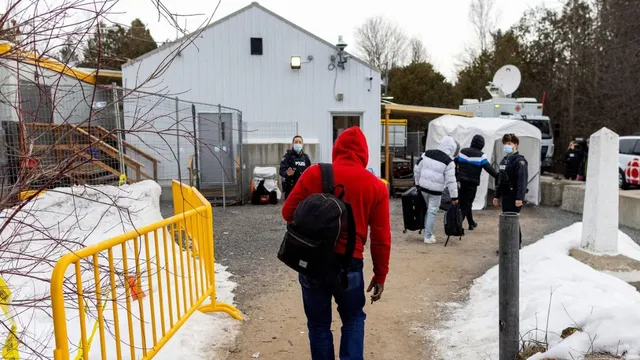- By Shivangi Sharma
- Thu, 30 Oct 2025 07:38 PM (IST)
- Source:JND
For many Indian families, the idea of studying abroad often comes with a heavy misconception: only the wealthy can afford it. However, according to Indian student Saransh Ahuja, currently studying in Canada, that belief is far from accurate. Speaking to The Times of India, Ahuja explained that with smart planning, part-time work, and financial discipline, students from middle-class backgrounds can comfortably build an academic career overseas.
“You need to be rich to study abroad, that’s not true,” he says. “With part-time work and a bit of smart planning, it’s absolutely possible.”
Co-op Programs And University Support
One of Ahuja’s biggest takeaways has been the importance of co-op programs and internships offered at universities such as the University of the Fraser Valley (UFV). These work placements allow students to earn while gaining real-world experience in their field.
“The co-op and internship support at UFV made a huge difference,” he explains. University career services also helped him polish his résumé, prepare for mock interviews, and connect with employers at networking sessions. “Applying for a co-op will actually be really helpful if you want to do that,” he adds.
ALSO READ: Louvre Heist: 5 More Arrests In $102 million Theft; Police Yet To Recover Stolen Jewellery
Finding A Home Away From Home
Ahuja lived off-campus, sharing a house with two other international students. That, he said, was a strategic choice: cheaper rent, greater flexibility, and friendships that would last a lifetime. His advice for incoming students is pragmatic: get an early start on housing searches, don't get scammed, and sign a lease.
Accurate accommodations are available through trusted channels like Kijiji or Facebook Marketplace, as well as through universities. Learning how to manage daily responsibilities, from budgeting and cooking to laundry and utility bills, was initially overwhelming.
“Back home, my mum used to bring me fruit every morning. Suddenly, I had to do everything myself,” he remembers. But then cooking became an acquired skill and a stress reliever too. Bulk shopping at Costco, budgeting apps, and adopting student discounts are some of the other things that keep him financially on track.
Networking: The Secret Advantage
Beyond grades, Ahuja encourages students to build a network. Relationships with professors, alumni and classmates can carry as much value as qualifications in Canada. Taking part in hackathons, side projects and co-op placements are also ways that will help in employability.
Rising Cost
In July, Canada revised its financial requirements. From September 1, 2025, students must show Rs 14 lakh in living funds. This is in addition to tuition and travel costs.
Currently, Indian students spend Rs 12.4 lakh – Rs 13.64 lakh annually on accommodation, food, transportation, and basic health insurance, with rent being the biggest expense, especially in cities like Toronto and Vancouver.

